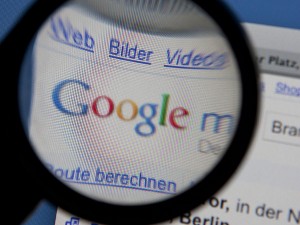France raps Google’s new privacy policy
PARIS—France on Tuesday demanded that Internet giant Google postpone rolling out its new privacy policy two days before it comes into effect as it appears to break European Union data protection rules.
“A preliminary analysis shows that these new rules do not respect the requirements of the European data protection directive,” said the National Commission for Computing and Freedom (CNIL), which has been asked to investigate Google’s new user terms by its European counterparts.
The CNIL asked Google to “postpone applying the new rules.”
Google has sought to reassure users that it will protect their personal data, while web users must accept the new terms to continue using its services, including its popular Gmail webmail and its Google+ social media service.
The new terms, which come into effect Thursday, will allow Google to regroup data from several different services that were previously separate, with one user agreement replacing more than 60 old ones.
Peter Fleischer, head of Google’s Global Privacy Counsel, said in an email to AFP: “We are convinced that we have found the right balance (concerning different EU recommendations by) rationalising and simplifying our policies while at the same time supplying ‘complete information’ to users.”
However, the CNIL said: “Instead of improving transparency, the way the new rules are formulated and the possibility of combining data from different services raises concerns and questions about Google’s real intentions.”
It added: “With the new rules, Google will be able to follow and associate a great part of web users’ activities, thanks to products such as Android, Analytics or its advertising services
.
“For instance, the new rules authorize Google to display adverts on YouTube that are connected to a user’s activity on their Android mobile telephone and geolocalization,” CNIL added.
The CNIL noted that Google currently controls more than 80 percent of the European search engine market, around 30 percent of the European mobile phone market, 40 percent of the global online video market and more than 40 percent of the world Internet advertising market.
Writing in French, Fleischer said Google had “offered several times in recent months to meet the CNIL to answer questions they might have.”
He added: “We want to offer our users an optimized experience with Google’s services and to make our undertakings in terms of confidentiality easy to understand.”
The CNIL in 2011 fined Google 100,000 euros ($135,000) for having collected private data as part of its controversial Street View service.
